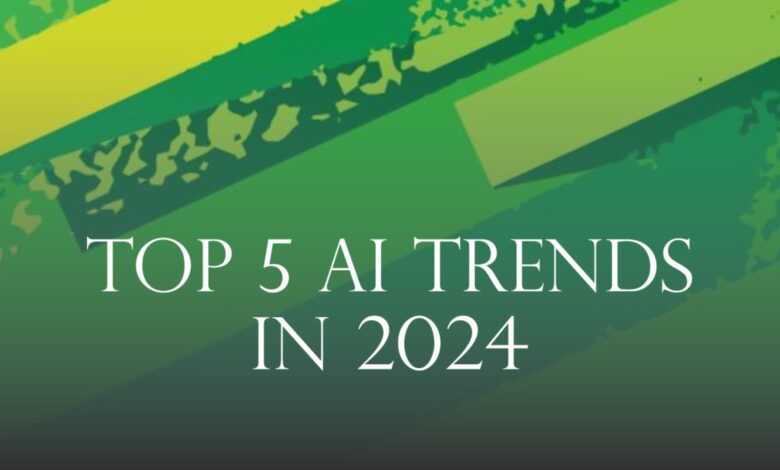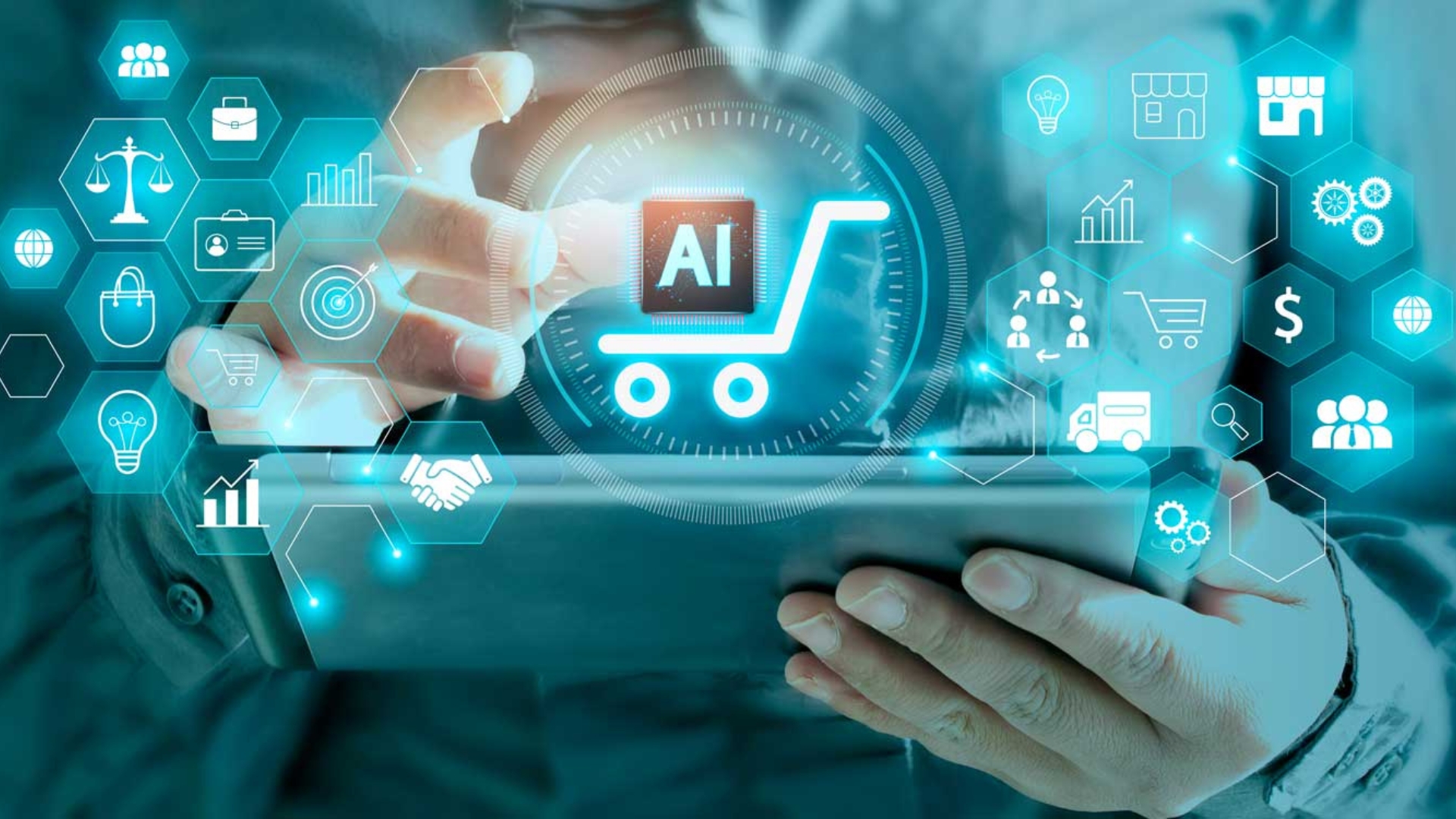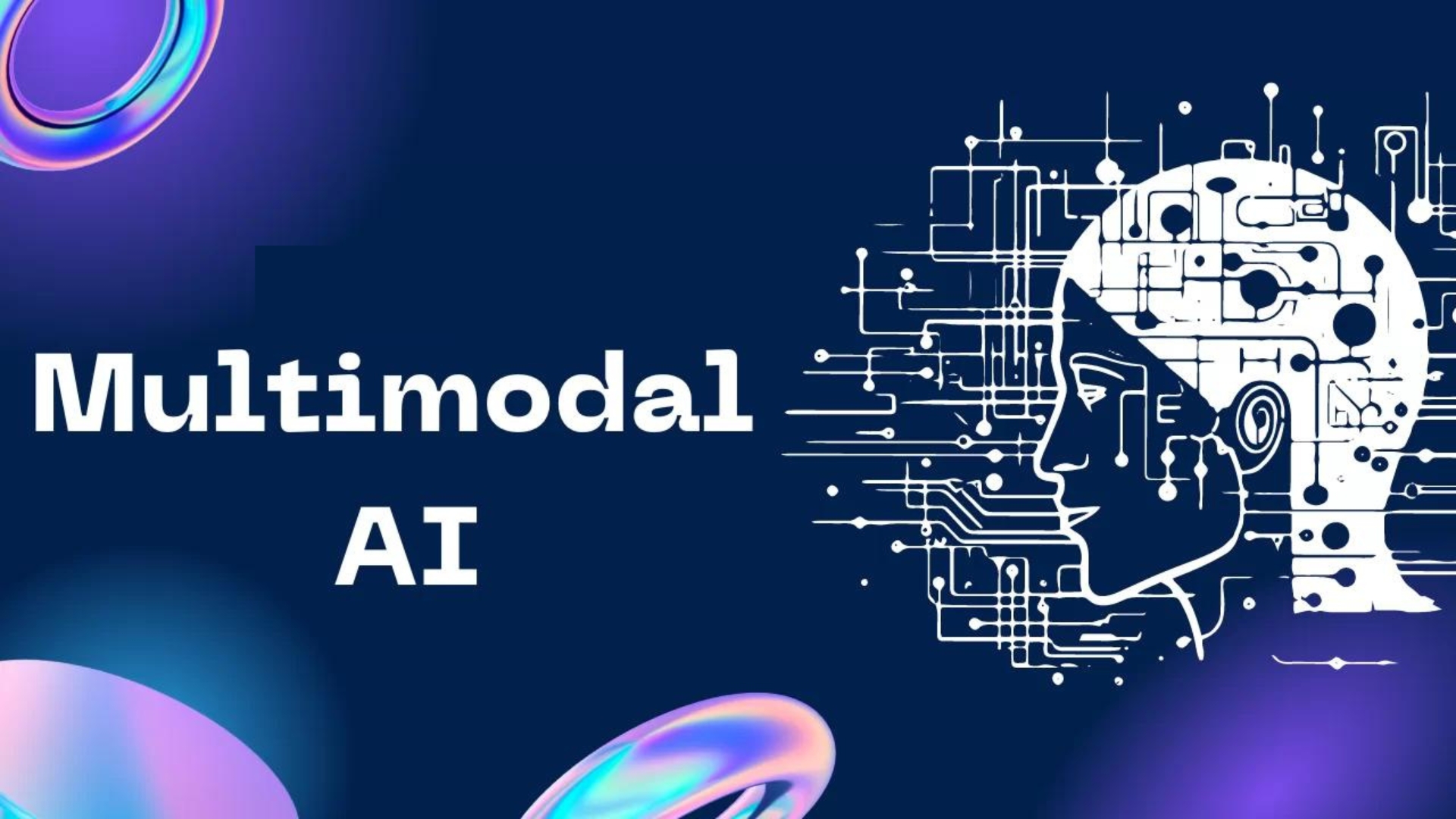5 AI Trends to Keep an Eye On in 2024

5 AI Trends to Keep an Eye On in 2024. The impact of artificial intelligence (AI) on the IT sector has been enormous, and it will continue to expand. According to PricewaterhouseCoopers, Almost three-quarters of US corporations utilize AI to some extent. Generative artificial intelligence is a relatively new development that might revolutionize entire markets and create wealth of trillions of dollars. A growing number of people worldwide are integrating generative AI into business processes, driving AI’s appeal and adoption. Keep reading to find out more about the latest AI trends.
5 Trends in Artificial Intelligence
Here are the AI trends expected to be seen in 2024.
Generative AI and Democratization
Among artificial intelligence trends this year, generative AI stands out. After ChatGPT and similar tools were made publicly available, corporate teams all over the globe started using them. This goes hand in hand with the democratization of AI, which makes it accessible to everyone, regardless of their level of technical expertise.
Why is Generative AI Important?
Generative AI employs machine learning to generate outputs according to pre-trained patterns and algorithms in response to user input. From site content to emails to children’s books, generators like ChatGPT produce AI-generated text. Some generators make code for web developers, pictures, and videos.
One form of democratization is generative AI. Hundreds of AI solutions already facilitate speedier content creation, language translation, and search engine populating. Whether between friends or between the public and the media, it’s altering how we communicate.
AI for Workplace Productivity
Workplace productivity is another area where AI is making waves. In particular, AI’s ability to automate tedious or repetitive jobs can significantly improve and expedite our work processes. Artificial intelligence (AI) offers enormous promise to enhance our efficiency in the workplace, whether we’re dealing with spreadsheet data entry, business plan outlining, or quality control in a manufacturing facility.
Concerned about AI taking over human jobs? Most of the time, it’s just automating repetitive tasks and freeing up human brainpower for more complex functions like creativity, emotional intelligence, and moral judgment.
Multimodal AI
The majority of LLMs (large language models) are text-only. Artificial intelligence multimodel models can understand text, audio, video, and picture input. Technological advancements are making it easier for search and content production tools to blend in with our existing apps and provide a more natural user experience.
As an example, iPhones can now identify people and objects in your shots thanks to their ability to process photos, metadata information, and search data. Multimodal enables what a human eye can perceive in an image: the ability to recognize objects.
AI in Science and Health Care
Tools powered by AI hold enormous promise in the fields of science and healthcare, in addition to their impact on corporate workplaces. Experts in the field, including those at Microsoft, are now developing AI-powered weather prediction, carbon emission estimation, and sustainable agriculture tools. Addressing and reducing the impact of climate change is the goal of this trend.
Chatbots are being used in the medical and agricultural fields, where they can assist doctors in diagnosing patients and farmers in identifying specific types of weeds. These steps can speed up scientific discoveries and medicinal advances, even though this AI is still working on its accuracy.
Regulation and Ethics
As AI continues to spread around the globe, there is a growing focus on minimizing potential hazards. Organizations like OpenAI and government bodies are working to promote artificial intelligence’s ethical and responsible use. During EU debates, a historic, all-encompassing measure to regulate artificial intelligence and ease consumer fears was discussed in March 2024. We anticipate its enactment this year.
Data manipulation, false information, prejudice, and privacy concerns might emerge and become more significant social threats without AI regulation. Tools may risk discrimination or legal action, for instance, if AI doesn’t gather data representative of the population. Many businesses and media outlets have taken legal action against OpenAI, the company behind ChatGPT and similar generators, claiming it infringes their copyright.